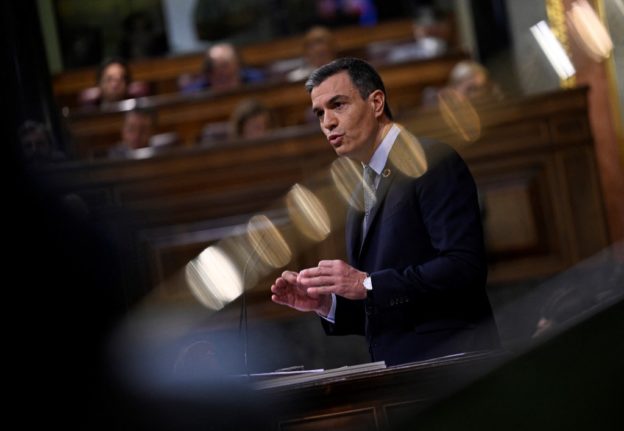The proposed law threatens to fuel tensions in a nation where public opinion is still divided over the legacy of the dictatorship that ended with Franco’s death in 1975.
Franco assumed power after the civil war in which his Nationalists defeated Republicans, leaving the country in ruins and mourning hundreds of thousands of dead.
While his regime honoured its own dead, it left its opponents buried in unmarked graves across the country.
Spain’s Prime Minister, Pedro Sánchez, has made the rehabilitation of the victims of the Franco era one of his priorities since coming to power in 2018.
In 2019 he had Franco’s remains removed from a vast mausoleum near Madrid and transferred to a discreet family plot.
The so-called “Democratic Memory” law will for the first time make unearthing the mass graves a “state responsibility”.
Up until now the search for the Franco-era disappeared has been carried out by voluntary associations, as was featured in Oscar-winning Spanish director Pedro Almodovar’s most recent film “Parallel Mothers”.
The bill is expected to be approved by a narrow majority in Spain’s lower house of parliament later Thursday. It then goes to the Senate for final approval expected at the end of the year.
“The State must exhume the remains of the victims of the Franco dictatorship,” Sanchez told parliament on Tuesday, adding “there are still 114,000 disappeared in Spain”, mostly Republicans.
Only Cambodia has more forcibly disappeared people, the premier said.
The bill will also create a DNA database to help identify remains found in the mass graves, create a map of mass graves and prevent publicly-funded institutions from glorifying the dictatorship.
It will also annul the criminal convictions of opponents of the dictatorship and appoint a prosecutor who will probe human rights abuses during the civil war and dictatorship.
Previous attempts to bring Franco-era officials to justice in Spain have been blocked by an amnesty agreement signed by political leaders after Franco’s death.
The agreement was seen as essential to avoid a spiral of score-settling as they tried to unite the country and steer it towards democracy.
The main opposition conservative Popular Party (PP) accuses the left of opening the wounds of the past with the bill. It has vowed to repeal the law if returns to power after the next general election expected at the end of
2023.


 Please whitelist us to continue reading.
Please whitelist us to continue reading.
Member comments